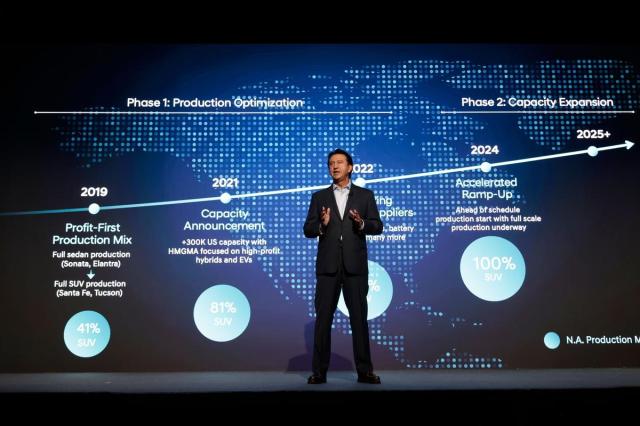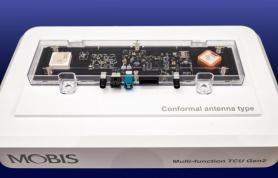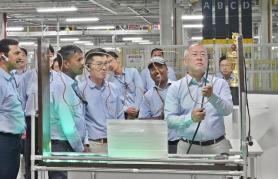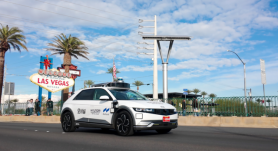
SEOUL, September 19 (AJP) - Hyundai Motor’s chief executive warned that stalled U.S.-South Korea trade talks on auto tariffs are threatening the company’s competitiveness in its most important overseas market, even as rival Japan secured a more favorable deal with Washington.
Speaking at Hyundai’s first overseas investor day in New York on Thursday (local time), Jose Munoz said the company’s current financial outlook assumes a 25 percent U.S. tariff on imported vehicles. “If reduced to 15 percent, we could maintain our current guidance,” he told analysts and institutional investors at the event, dubbed “2025 CEO Investor Day.”
The remarks underscored Hyundai’s dependence on a tariff outcome that has grown more uncertain.
In July, South Korea reached a preliminary deal with the United States to cut auto tariffs from 25 percent to 15 percent, but final negotiations have since stalled. Japan, by contrast, finalized its agreement with Washington earlier this month, with the lower 15 percent rate taking effect on Sept. 16.
The shift has heightened pressure on Hyundai, which raised its 2025 revenue growth target to 5 to 6 percent but trimmed its operating profit margin goal to 6 to 7 percent, citing the financial drag of tariffs.
Munoz also addressed a recent episode at Hyundai’s joint battery plant with LG Energy Solution in Georgia, where more than 300 South Korean workers were temporarily detained over visa issues.
“Many of them were involved in advanced battery production,” he said, stressing the need for a “mutually beneficial resolution” to facilitate short-term technical staff exchanges.
He noted that Hyundai has been part of American industry for four decades and has deep roots in Georgia, where its new battery and electric vehicle plant is the state’s largest economic development project.
“We understand the stress faced by the detained workers and their families and are relieved they returned safely to Korea,” he added.
Hyundai is investing 77.3 trillion won, or about $56 billion, over the next five years to weather challenges from softening electric vehicle demand and tariff uncertainty. By 2030, the company aims to sell 5.55 million vehicles worldwide, with 60 percent of them powered by electricity or hybrid technology.
The New York event was the first time Hyundai convened investors outside South Korea, underscoring its ambition to position itself as a global leader in the transition to cleaner cars.
* This article, published by Aju Business Daily, was translated by AI and edited by AJP.
Copyright ⓒ Aju Press All rights reserved.



